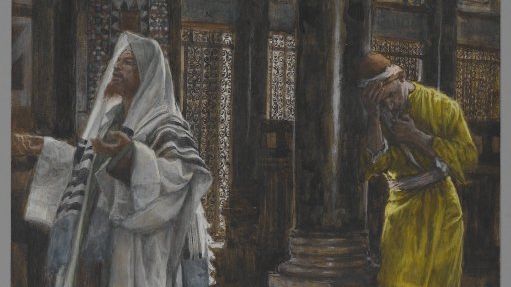The Good Samaritan Isn’t About Being Nice

Everyone thinks they know this parable. A man gets beaten up, religious folks walk by, and a nice Samaritan helps him out. Most people assume it’s just about being kind to strangers or helping those in need. But here’s the thing – the parable of the Good Samaritan is largely misunderstood. This parable, therefore, will be misunderstood by non-believers. It will be flattened out into a simple story of showing kindness.
The real twist comes when you look at who Jesus was actually talking to in Luke 10. This is a scene of personal evangelism. It is parallel to Jesus and Nicodemus in John 3. It is parallel to Jesus and the rich young ruler in Matthew 19, Jesus doing personal evangelism. The lawyer who prompted this parable was trying to justify himself, asking “Who is my neighbor?” Jesus flipped the question completely – showing that the real issue wasn’t identifying who deserves our help, but whether we’re acting as neighbors ourselves. The Samaritan wasn’t just being charitable; he was demonstrating what it truly means to love your neighbor as yourself.
The Mustard Seed – Not What Disney Taught You

The Parable of the Mustard Seed is one of the most misinterpreted parables in the Bible. People love to talk about how this tiny seed grows into a magnificent tree where beautiful birds come to nest. It sounds inspiring, right? Like your small faith can grow into something amazing that attracts good things. But hold on – there’s a major problem with that interpretation.
Because of the beauty of the songbirds that line our trees, and possibly even the portrayal of birds in Disney princess movies, we tend to think of birds as good, beautiful creatures. However, the birds that Jesus referred to were nothing like the mockingbirds, parakeets and robins we see today. The birds who inhabited Israel during Jesus day were more like vultures, buzzards and crows. That explains why these birds were symbolic of demonic forces. In explaining the Parable of the Sower, Jesus said the fowl of the air symbolized the evil one which snatches up the seed of the Gospel before it takes root.
Each of these parables follows a common theme. Things start out pure, then corrupt as time moves forward. The same can be said for the Christian movement. Rather than being an encouraging story about growth, this parable actually warns how Christianity would start small but eventually become so large that it would attract corrupt influences – those metaphorical vultures. It’s a sobering prophecy about institutional corruption, not a feel-good story about personal faith.
The Rich Man and Lazarus – The Great Misunderstanding

This might be the most misread parable in the entire Bible, and the confusion has massive theological implications. This parable is often interpreted as being about the immediate fate of the dead. After all, a surface-level reading seems to show the beggar Lazarus dying and going to heaven while the selfish rich man dies and descends to hell. Countless sermons have used this story to describe what happens right after we die, painting vivid pictures of conscious torment in hell.
But here’s where it gets interesting – and controversial. The Jews had unfortunately accepted the Greek Pagan belief that when a person died they went into the fire to purify the soul. Jesus took this erroneous idea and used it as subject matter for the parable of the Rich Man and Lazarus, the poor man. Jesus wasn’t teaching theology about the afterlife; he was using familiar (but incorrect) imagery to make a point about social responsibility and spiritual priorities.
Just before this parable, Jesus tells another parable about wealth (Luke 16:1–13) – and the passage in between (16:14–18) finds Jesus rebuking the Pharisees for loving money, exalting themselves in self-justification, and ignoring the Old Testament’s authority. All three themes are woven into the parable of the Rich Man and Lazarus. The real message? Jesus also addressed another false understanding the Jews of His day had – that if a man was rich he was blessed by God (Mark 10:17-26) and if he was poor he was cursed. Jesus takes this teaching and turns it on its head. Jesus teaches that our future destiny is decided by our acceptance of Christ and the privileges and opportunities in this present life and that there isn’t a second chance after death.
The Prodigal Son – Missing the Point Entirely

Everyone loves the prodigal son story. It’s become the go-to tale about God’s forgiveness and second chances. The wayward son comes crawling back, and the loving father welcomes him with open arms. Churches use this parable to encourage people that no matter how far they’ve fallen, God will take them back. But focusing solely on the younger son misses the parable’s most important character – the older brother.
The older brother’s reaction reveals the heart of the parable’s original audience. The parable of the Good Samaritan isn’t about being a good neighbor. Similarly, this parable isn’t primarily about wayward sinners returning home. It’s about religious people who get angry when God shows mercy to those they think don’t deserve it. The older brother represents the Pharisees who were furious that Jesus welcomed tax collectors and sinners.
The parable actually ends without resolution – we never learn whether the older brother joins the celebration. That’s intentional. Jesus was challenging his audience to examine their own hearts. Are we celebrating when the lost are found, or are we like the older brother, resentful that others receive grace we think they haven’t earned? The parable forces us to confront our own spiritual pride and exclusiveness.
The Ten Virgins – Not About Being Prepared

There’s a lot of disagreement about the meaning of this parable. Its interpretation tends to be tied to the theological leanings of the individual interpreting it. At its most basic level though, it’s simple to understand. Most people read this as a straightforward lesson about spiritual preparation – keep your lamp burning, stay ready for Jesus’ return, don’t get caught off guard. But this interpretation creates some uncomfortable questions about Christian charity and sharing.
Why did the wise virgins refuse to share their oil? Doesn’t that seem selfish and un-Christian? The parable is about 10 virgins who are waiting to accompany a bridegroom to the bride’s home as part of a traditional procession. When it is announced that he’s on his way, only five of them are prepared with extra oil for their lamps. The unprepared virgins attempt to get oil from the others, but knowing that they’ll run out, the prepared virgins refuse. The foolish virgins run to purchase fuel, but they miss the bridegroom and are unable to attend the wedding feast.
The oil represents something that cannot be shared or transferred from one person to another – your personal relationship with God, your individual faith journey, your own spiritual development. You can’t borrow someone else’s spiritual maturity or ride on their coattails into the kingdom. Jesus is telling the disciples that His followers will be prepared for His coming. They’re not going to be distracted and surprised when He comes. The parable isn’t about being generally prepared; it’s about having genuine, personal faith that can’t be faked or borrowed when the moment of truth arrives.
The Sower – Seeds Aren’t the Gospel

This parable seems pretty straightforward since Jesus actually explains it in the text. The sower scatters seed on different types of ground, representing how people receive the gospel message. The seed is the word of God, and the different soils represent different heart conditions. Case closed, right? Not quite. Many people miss crucial details that change the entire interpretation.
Parables were stories Jesus told that contained hidden spiritual truths about the kingdom – truths that can only be discerned through the eyes of faith and deeper study. By design, their spiritual insights were hidden from the unbelieving heart. But for those with ears to hear and eyes to see, they shed a powerful light on the principles of the kingdom that God intends the believer to know and live by.
The shocking truth is that the sower seems incredibly wasteful, throwing seed everywhere without preparing the ground. A real farmer wouldn’t do that. But God’s approach to spreading his kingdom is radically different from human wisdom. He scatters his word generously, knowing that much of it will be wasted, because he’s looking for that good soil that will produce an incredible harvest. The parable isn’t just about different types of people – it’s about God’s extravagant, seemingly wasteful generosity in sharing his truth with everyone, regardless of their apparent receptiveness.
The Workers in the Vineyard – Justice vs. Grace

This parable makes people uncomfortable, and rightfully so. Workers hired at different times throughout the day all receive the same pay, and those who worked the longest complain about the apparent unfairness. Most interpretations try to smooth over the tension by focusing on God’s generosity. “God can do whatever he wants with his money,” they say. “Be grateful for what you receive.” But that misses the parable’s revolutionary message about merit-based thinking.
The parable directly challenges our human obsession with fairness and earning our way. Those first workers had a contract – they agreed to work for a denarius and got exactly what was promised. Their complaint wasn’t about being cheated; it was about others receiving unearned generosity. This cuts to the heart of how we view salvation and God’s kingdom.
Every religious person secretly believes they deserve more than someone else because they’ve worked harder, been more faithful, or made fewer mistakes. This parable demolishes that thinking. In God’s kingdom, grace trumps merit every time. The late-comers don’t receive less because they contributed less – they receive the full blessing because that’s how grace works. It’s not about what we earn; it’s about what God freely gives. This parable should make every self-righteous person deeply uncomfortable.
Hidden Wisdom: The Persistent Widow Reveals Prayer’s True Nature

Luke 18 tells of a widow who keeps bothering an unjust judge until he finally gives her justice just to get rid of her. The surface lesson seems clear: keep praying persistently until God answers. But this interpretation makes God look like a reluctant, annoying judge who only helps us when we become sufficiently bothersome. That’s not just wrong – it’s backwards.
Jesus taught theology through parables. His theology is in His parables. All the parables He taught were about the kingdom of God. The apostle Paul teaches us that the kingdom of God is righteousness, peace, and joy in the Holy Spirit. This parable uses contrast, not comparison. If an unjust judge will eventually give justice to a persistent widow, how much more will a loving God quickly respond to his children’s prayers?
The hidden wisdom isn’t about wearing God down with repetition. It’s about understanding the character of God versus human authority figures. The judge had no relationship with the widow and no reason to care about her. God, however, is our loving Father who cares about every detail of our lives. The parable encourages persistent prayer not because God is reluctant, but because persistent prayer reveals our faith and dependence on him. It’s about the state of our hearts, not the frequency of our requests.
Hidden Wisdom: The Unjust Steward’s Shocking Strategy

This parable in Luke 16 is so confusing that many preachers just skip over it entirely. A dishonest manager gets caught embezzling, so before he’s fired, he reduces what people owe his master, essentially stealing even more money. Then Jesus says to learn from this guy’s shrewdness. Wait, what? Is Jesus endorsing dishonesty and theft?
In summary, Jesus’ parables illustrate his teaching approach and highlight how he “democratized” wisdom that had previously been confined to the social elites, making profound spiritual insights accessible to everyone. This innovative use of parables significantly contributed to his widespread appeal and lasting impact. The steward understood that relationships matter more than money. He used his master’s resources to secure his future by building relationships with people who would take care of him later.
The hidden wisdom? Use material resources to build eternal relationships. The steward was “unjust” with money but wise about relationships. He understood something crucial: money is temporary, but relationships can be eternal. Jesus isn’t endorsing dishonesty – he’s pointing out that even dishonest people sometimes understand spiritual principles better than religious people do. We should be at least as strategic about eternal matters as the world is about temporal gain.
Hidden Wisdom: The Pharisee and Tax Collector’s Prayer Reversal

In Luke 18, two men go to the temple to pray. The Pharisee lists all his good works and thanks God he’s not like other people, especially that tax collector. The tax collector simply asks for mercy, saying “God, be merciful to me, a sinner.” Jesus says the tax collector went home justified, not the Pharisee. Most people read this as a simple lesson about humility versus pride.
But the hidden wisdom goes deeper than surface-level humility. The Pharisee’s prayer was actually theologically correct according to first-century Jewish understanding. He was thanking God for helping him live righteously, which Scripture encourages. The tax collector, meanwhile, was a genuine criminal who cheated people for a living. By human standards, the Pharisee should have been the winner.
The apostle Paul teaches us that the kingdom of God is righteousness, peace, and joy in the Holy Spirit. So a proper understanding of the parables would always reveal that righteousness is God’s free gift to mankind, and those who receive righteousness are at peace with God. Knowing you are as righteous as Jesus is because you received His righteousness and that Jesus paid the price for all your sins, you can live in peace with God. He is at peace with you. The tax collector understood what the Pharisee missed: righteousness comes from God’s mercy, not human achievement. The hidden wisdom reveals that spiritual pride is more dangerous than moral failure because it closes our hearts to grace.
The Deeper Truth About Parables

As the parables were told originally by Jesus, they were addressed to all people and could be understood by all. They did not communicate a hidden meaning that only the initiated insider could discover through complicated allegorical interpretation. Scholars have come to recognize that the allegorical meanings were added to the parables at a later stage of transmission. Yet somehow, nearly two thousand years later, we keep missing their original punch.
The real issue isn’t that parables are too complicated – it’s that they’re too simple, too direct, too challenging. Ignoring the context. This is perhaps the most common mistake when it comes to misused or misinterpreted verses or stories. Taking anything out of context is almost always going to give us a false interpretation of the truths God intends for us to understand and apply to our lives. We’d rather turn them into safe moral lessons than face their uncomfortable truths about pride, grace, and spiritual reality.
This is particularly impressive when you consider the fact that Jesus’s teachings and stories were so simple. We often have the mistaken view that the more intelligent and complex an idea sounds, the more impressive it is. Jesus didn’t see it that way. The parables of Jesus made the wisdom of God accessible. Maybe that’s exactly why we struggle with them – we expect spiritual wisdom to be complicated, but Jesus wrapped the deepest truths in the simplest stories. The question isn’t whether we can understand them, but whether we’re willing to let them change us.






